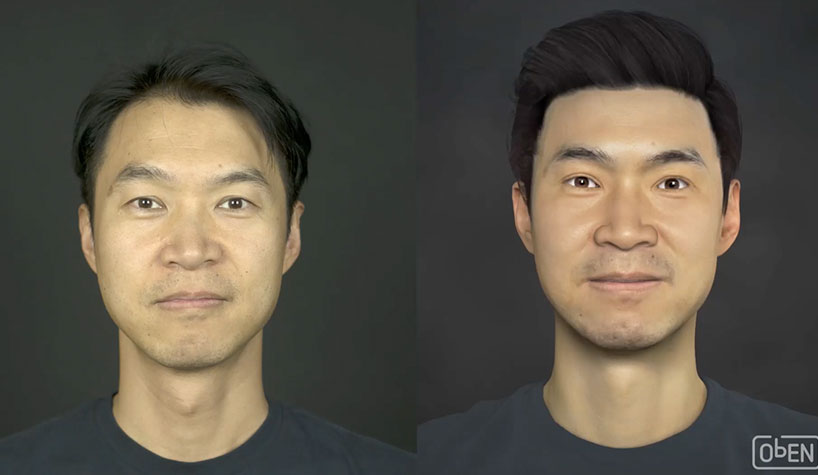PASADENA, CA—The future is here and now. Opportunities for intelligent avatars, personal concierge services and new virtual shopping experiences are coming to the hospitality space.
With ObEN, all it takes is one selfie and a short voice recording. The full-stack AI company, founded in 2014 by CEO Nikhil Jain and COO Adam Zheng, is harnessing personal AI (PAI) for consumers, celebrities—and now, concierge services—secured on the PAI blockchain.
“Using our proprietary technology, users can create a PAI that looks like them, speaks in their voice, and can learn to behave like them. Our technology can even transform a user’s speaking voice into their singing voice,” said Jain. “ObEN is the German word for up or above. ObEN’s technology can be used on top of or above numerous existing technologies and solutions across different industries, and we wanted our company’s name to reflect the flexibility and applicability of our technology.”
The company’s origin came out of a discussion between the co-founders about how much their children missed them while traveling on business. The thought of leaving behind a virtual copy of themselves while away on business was intriguing.
“The idea then expanded to all things that a personal virtual avatar can achieve, if it was powered by AI. Not only could it read bedtime stories to our children, it would be able to help us complete different tasks, help coordinate our travel, and ultimately just save us more time,” said Jain. “Because our technology essentially allows people to create a representation of themselves in the digital space, we recognized how important authenticating and securing the PAI is, which is why we adopted the Project PAI blockchain and are now working to create applications for our PAI technology on the blockchain.”
You know a concept has legs when investors want to get involved. K11 invested $10 million in the AI company to bring these immersive experiences to hospitality and retail.
“K11’s founder Adrian Cheng is an entrepreneur with an eye for the future. He really has a vision for reimagining the shopping experience. K11 is the creator of the first art mall concept in Asia and these grand shopping centers act as both galleries and malls, merging art, entertainment and retail,” said Jain. “Personal AI will allow visitors to have a more fun, streamlined and personalized experience. The PAI essentially becomes a personal concierge, acting as a guide through the mall, providing directions, offering information on the art visitors are looking at, providing shopping and dining recommendations based on each users preferences. For ObEN, the partnership with K11 represents the expansion of our technology into the retail and hospitality space.”
Hotel and hospitality operators are always evaluating technologies to see what’s coming next. “ObEN’s concierge PAI can act as a personalized layer on top of pre-existing solutions that operators have already implemented,” he said. “Imagine that instead of getting a text reminder about your room reservation, a user’s PAI or a PAI of the hotel’s concierge delivers a personalized notification. And when guests arrive, the concierge PAI can help guests learn about all the hotel’s dining, entertainment and amenities, all personalized for their needs. Think of the PAI technology as a tool that will allow hotels to offer a dedicated concierge to each guest, delivering a better overall experience.”
But, will guests want to interact with augmented reality, virtual reality and artificial-intelligence powered concierges and similar services in a hospitality setting? Jain says yes.
“Consumers are incredibly savvy now, and interacting with an AI-powered concierge can be just as simple as using an app—probably simpler, since ObEN’s natural language processing (NLP) technology means that you can potentially interact with the PAI concierge much like a voice or smart home assistant,” he said. “In addition, it’s not only about the utilization of the hotel’s concierge PAI. Guests can also create their own PAI, which can then interact with a PAI-based application developed by the hotel. The users can then share data with the hotel that will allow the operator to automatically tune the guests stay—whether it is room temperature, preferred amenities, even how many towels they prefer—to the guest’s specific tastes and needs. They can eventually help guests manage their entire vacation process from the moment they start planning to the moment they return home and everything in between.”
For hoteliers, onboarding this type of technology across a portfolio will take some steps, including educating staff and guests, planning for implementation, and much more.
“It’s important that staff understand and are interested in the technology so that they can better introduce it to the guests as the PAI concierge is rolled out. After that, it is about helping guests understand what they can use the PAI concierge for and getting them familiarized with using this service rather than calling room service or the front desk,” said Jain. “Personal AI on the blockchain can truly help those in the hotel business bring their service to the next level. It is the fulfillment of a luxury many guests can only dream of—a personal concierge available 24/7 that can cater to each guests’ needs. The hotels that stay ahead of the curve in adopting this technology will provide a truly unique experience that will revolutionize the guest experience.”
